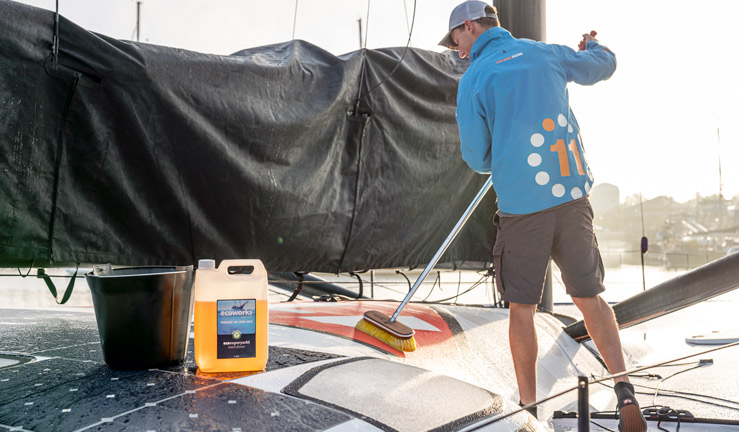5 ways to help protect our waters
We share our top tips for having a positive environmental impact on the places you visit this season

This season many of us are looking forward to getting outside, exploring new areas, and spotting wildlife.
Our waterways and coastline provide incredible habitats to an array of birds and animals that we’re lucky enough to share our time afloat with. For those planning your next trip, here are five actions to help protect the waters you visit.
Choose your anchorage with care
.jpg)
Before your trip, find out if there are any protected seabed habitats where you intend to anchor. If possible, always choose to use an existing mooring. Avoiding anchoring on or near these habitats gives time and space for the plants and animals to establish or recover, resulting in a more diverse habitat. To help preserve and protect the waters, research vulnerable seabed habitats before your trip to ensure you anchor with care.
Look out for approaching wildlife
.jpg)
Use binoculars and, in open water, stay at least 300ft away from wildlife to minimise disturbance. Avoid approaching any animals from behind as this can be perceived as predatory. Instead, maintain a slow, consistent course to make your approach more predictable and less threatening. Remember to keep to designated speed limits and if in doubt, don’t exceed 4 knots when close to shorelines. This will minimise any disturbance from your wake on wildlife and will reduce the erosion of nearby habitats. Find out more about how to safely navigate around marine wildlife.
Review your cleaning products

Did you know that many cleaning products contain a range of chemicals that are harmful to aquatic life? Switching to more environmentally friendly options is a quick and easy way to protect the water and its marine habitat. EcoWorks Marine cleaning products, provide powerful and eco-friendly cleaning products for outside and inside your boat, including teak and deck cleaner, bilge cleaner and washing-up liquid, and RYA members can save up to 15%. Find these and other sustainable products on The Green Blue Business Directory.
Check – Clean – Dry
.jpg)
Wherever you’re visiting this season, there are three simple actions which you should always take to reduce the spread of non-native invasive species – ‘check, clean, dry.’ Some non-native species are completely harmless but others, known as invasive or species, can cause damage to the environment, economy, and our health.
Check your boat, equipment and clothing for debris, plants or any small creatures which may have accidentally become attached. Thoroughly clean all areas with hot water, including boat trailers, ropes, and bilges. Next, drain all water and dry every part of your equipment, boat, or trailer.
Make The Green Blue Boating Pledge

The Green Blue Boating Pledge is a new way for all boat users to show their commitment to protecting the water and respecting the environment. It’s completely free to join and in return you can opt-in to receive a Pledge Pack with handy environment best practice leaflets, a pin badge, and a certificate. Sign-up today and show your commitment to Respect, Protect and Enjoy our waters!
Find out more
To help protect the waters you visit, take a look at the practical videos, advice, and downloadable guides available from The Green Blue.
